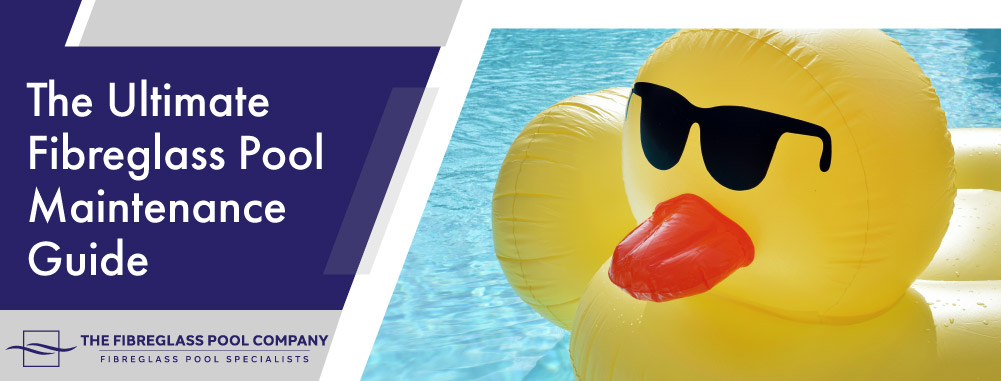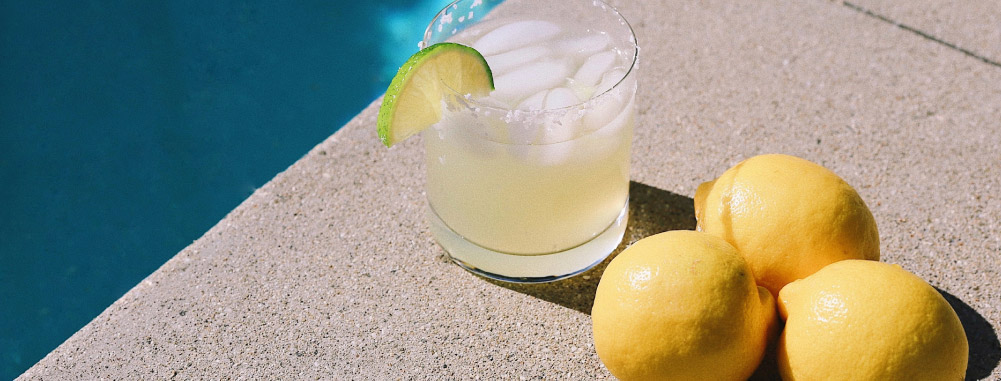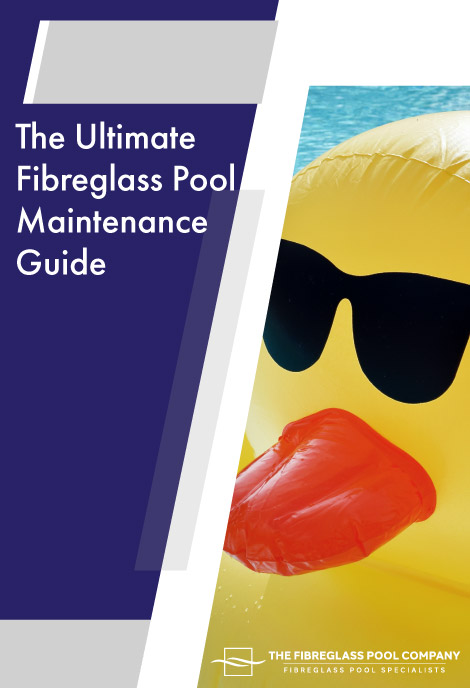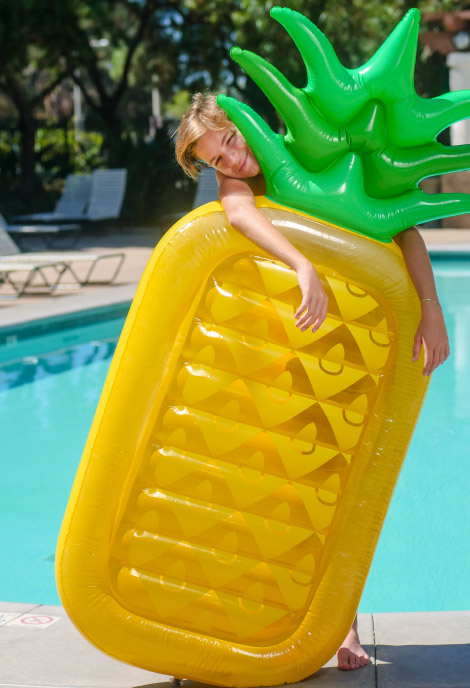If you have a fibreglass pool in your backyard, you're familiar with the joy it brings, particularly during the warmer months. There's nothing quite like taking a refreshing dip on a hot summer day. However, proper up-keep is crucial to ensure your pool remains the sparkling oasis it's meant to be. This guide will help you maintain your fibreglass pool, keeping it safe, inviting, and enjoyable for your family. From regular cleaning and chemical balancing to checking for damage, we'll cover it all. Understanding the unique characteristics of fibreglass pools and implementing the right maintenance routine will extend your pool's lifespan and keep it in great condition for years to come. So, whether you're a seasoned pool owner or new to the world of fibreglass pools, this guide is your go-to resource for keeping your pool pristine and ready for endless hours of fun and relaxation. Get ready to dive into the world of pool maintenance and discover the secrets to maintaining a picture-perfect pool!

Regular Cleaning and Chemical Balancing
Regular cleaning is a crucial and fundamental aspect of pool maintenance for fibreglass pools. To ensure optimum cleanliness, it is important to focus on several key tasks. Firstly, skimming the surface of the water to remove any debris and leaves that may have accumulated is vital for maintaining a pristine pool. Additionally, vacuuming the bottom of the pool is essential to eliminate any sediment or dirt that may have settled, ensuring a clean and inviting environment for swimmers.
In addition to physical cleaning, maintaining the proper chemical balance of the pool is imperative. This involves monitoring and adjusting the pH, alkalinity, and chlorine levels regularly. By keeping these levels in check, you can prevent the water from becoming too acidic or alkaline, which not only harms the fibreglass surface but also poses potential health risks for swimmers. Striving for a well-balanced pool chemistry is essential for both the longevity of the fibreglass pool and the overall hygiene of the swimming experience.
Checking for Damage
Over time, as your fibreglass pool ages gracefully, it may start to show subtle signs of wear and tear. It is important to make a habit of regularly inspecting your pool for any cracks, blisters, or leaks that may arise. By diligently checking for these issues, you can promptly identify and address them before they escalate into more significant repairs or cause extensive damage. If you happen to come across any of these problems, it is highly advisable to seek the professional expertise of a reputable pool repair service. With their specialised knowledge and skills, they will ensure that any damage is properly assessed and expertly resolved, granting you peace of mind and preserving the longevity of your beloved pool.

Filtration and Circulation
To ensure the cleanliness and clarity of your pool water, having an effective filtration system in place is crucial. This system works tirelessly to trap dirt and debris, preventing them from finding their way back into the pool. But that’s not all. The pool’s circulation system also plays a vital role in maintaining the water quality by evenly distributing chemicals throughout the pool and preventing any signs of water stagnation. By regularly checking and maintaining these systems, you can ensure they perform optimally and keep your pool water in pristine condition all year round. So, go ahead and dive into crystal-clear waters with confidence!
Pool Cover Usage
Using a pool cover can offer numerous advantages. Not only does it help to reduce water evaporation and keep debris out of the pool, but it also acts as a protective shield to maintain the water temperature. This is especially beneficial during the colder months when the pool cover plays a crucial role in easing your pool maintenance routine. By adding an extra layer of detail, you can enjoy a cleaner, more energy-efficient pool all year round.
Preventing and Addressing Common Issues
Despite your best efforts, you may occasionally face common pool issues such as algae growth and staining. Algae, a plant-like organism, can thrive in pools when the correct chemical balance is not maintained. To keep algae at bay, it is important to regularly test and adjust the water’s pH, chlorine, and alkalinity levels. In case of persistent algae, using an algaecide specifically designed for pools can help to effectively eliminate it.
Staining, on the other hand, is typically caused by minerals present in the water. These minerals can leave unsightly marks on the pool surface. To address staining, using a stain remover that is compatible with fibreglass pools can help to remove or lighten the stains. Additionally, regularly monitoring and adjusting the water chemistry, such as pH and hardness levels, can help prevent further staining.

Advantages of Fibreglass Pools: Easy Maintenance and Longevity
While all types of pools require maintenance, fibreglass pools are renowned for being easier and more straightforward to maintain than their concrete or vinyl counterparts. The non-porous surface of fibreglass pools not only inhibits the growth of algae, reducing the need for chemical use, but also makes them resistant to drastic changes in pH levels, thereby ensuring a stable and balanced pool chemistry.
Moreover, fibreglass pools are designed to be durable and resilient against cracks and leaks, significantly reducing the need for frequent repairs, unlike concrete pools that tend to be more susceptible to such issues. The smooth surface of fibreglass also makes it easier to clean, as dirt and debris can’t stick as readily.
Finally, these types of pools are renowned for their longevity, retaining their aesthetic appeal for many years with very little maintenance. This makes fibreglass pools a cost-effective and low-maintenance option for homeowners, letting you focus more on enjoying your pool rather than constant upkeep.
To Conclude
By following the guidelines above and taking proactive measures, you can ensure that your fibreglass pool stays in top condition, offering a long lasting and refreshing retreat whenever you need it. Regular maintenance and attention to detail will help you enjoy the clean and clear waters of your pool all year round.
If you have a fibreglass pool in your backyard, you're familiar with the joy it brings, particularly during the warmer months. There's nothing quite like taking a refreshing dip on a hot summer day. However, proper up-keep is crucial to ensure your pool remains the sparkling oasis it's meant to be. This guide will help you maintain your fibreglass pool, keeping it safe, inviting, and enjoyable for your family. From regular cleaning and chemical balancing to checking for damage, we'll cover it all. Understanding the unique characteristics of fibreglass pools and implementing the right maintenance routine will extend your pool's lifespan and keep it in great condition for years to come. So, whether you're a seasoned pool owner or new to the world of fibreglass pools, this guide is your go-to resource for keeping your pool pristine and ready for endless hours of fun and relaxation. Get ready to dive into the world of pool maintenance and discover the secrets to maintaining a picture-perfect pool!

Regular Cleaning and Chemical Balancing
Regular cleaning is a crucial and fundamental aspect of pool maintenance for fibreglass pools. To ensure optimum cleanliness, it is important to focus on several key tasks. Firstly, skimming the surface of the water to remove any debris and leaves that may have accumulated is vital for maintaining a pristine pool. Additionally, vacuuming the bottom of the pool is essential to eliminate any sediment or dirt that may have settled, ensuring a clean and inviting environment for swimmers.
In addition to physical cleaning, maintaining the proper chemical balance of the pool is imperative. This involves monitoring and adjusting the pH, alkalinity, and chlorine levels regularly. By keeping these levels in check, you can prevent the water from becoming too acidic or alkaline, which not only harms the fibreglass surface but also poses potential health risks for swimmers. Striving for a well-balanced pool chemistry is essential for both the longevity of the fibreglass pool and the overall hygiene of the swimming experience.
Checking for Damage
Over time, as your fibreglass pool ages gracefully, it may start to show subtle signs of wear and tear. It is important to make a habit of regularly inspecting your pool for any cracks, blisters, or leaks that may arise. By diligently checking for these issues, you can promptly identify and address them before they escalate into more significant repairs or cause extensive damage. If you happen to come across any of these problems, it is highly advisable to seek the professional expertise of a reputable pool repair service. With their specialised knowledge and skills, they will ensure that any damage is properly assessed and expertly resolved, granting you peace of mind and preserving the longevity of your beloved pool.

Filtration and Circulation
To ensure the cleanliness and clarity of your pool water, having an effective filtration system in place is crucial. This system works tirelessly to trap dirt and debris, preventing them from finding their way back into the pool. But that’s not all. The pool’s circulation system also plays a vital role in maintaining the water quality by evenly distributing chemicals throughout the pool and preventing any signs of water stagnation. By regularly checking and maintaining these systems, you can ensure they perform optimally and keep your pool water in pristine condition all year round. So, go ahead and dive into crystal-clear waters with confidence!
Pool Cover Usage
Using a pool cover can offer numerous advantages. Not only does it help to reduce water evaporation and keep debris out of the pool, but it also acts as a protective shield to maintain the water temperature. This is especially beneficial during the colder months when the pool cover plays a crucial role in easing your pool maintenance routine. By adding an extra layer of detail, you can enjoy a cleaner, more energy-efficient pool all year round.
Preventing and Addressing Common Issues
Despite your best efforts, you may occasionally face common pool issues such as algae growth and staining. Algae, a plant-like organism, can thrive in pools when the correct chemical balance is not maintained. To keep algae at bay, it is important to regularly test and adjust the water’s pH, chlorine, and alkalinity levels. In case of persistent algae, using an algaecide specifically designed for pools can help to effectively eliminate it.
Staining, on the other hand, is typically caused by minerals present in the water. These minerals can leave unsightly marks on the pool surface. To address staining, using a stain remover that is compatible with fibreglass pools can help to remove or lighten the stains. Additionally, regularly monitoring and adjusting the water chemistry, such as pH and hardness levels, can help prevent further staining.

Advantages of Fibreglass Pools: Easy Maintenance and Longevity
While all types of pools require maintenance, fibreglass pools are renowned for being easier and more straightforward to maintain than their concrete or vinyl counterparts. The non-porous surface of fibreglass pools not only inhibits the growth of algae, reducing the need for chemical use, but also makes them resistant to drastic changes in pH levels, thereby ensuring a stable and balanced pool chemistry.
Moreover, fibreglass pools are designed to be durable and resilient against cracks and leaks, significantly reducing the need for frequent repairs, unlike concrete pools that tend to be more susceptible to such issues. The smooth surface of fibreglass also makes it easier to clean, as dirt and debris can’t stick as readily.
Finally, these types of pools are renowned for their longevity, retaining their aesthetic appeal for many years with very little maintenance. This makes fibreglass pools a cost-effective and low-maintenance option for homeowners, letting you focus more on enjoying your pool rather than constant upkeep.
To Conclude
By following the guidelines above and taking proactive measures, you can ensure that your fibreglass pool stays in top condition, offering a long lasting and refreshing retreat whenever you need it. Regular maintenance and attention to detail will help you enjoy the clean and clear waters of your pool all year round.


